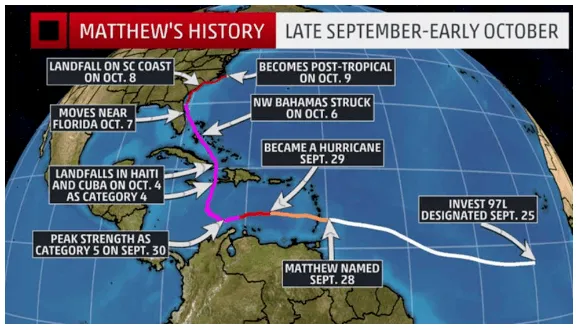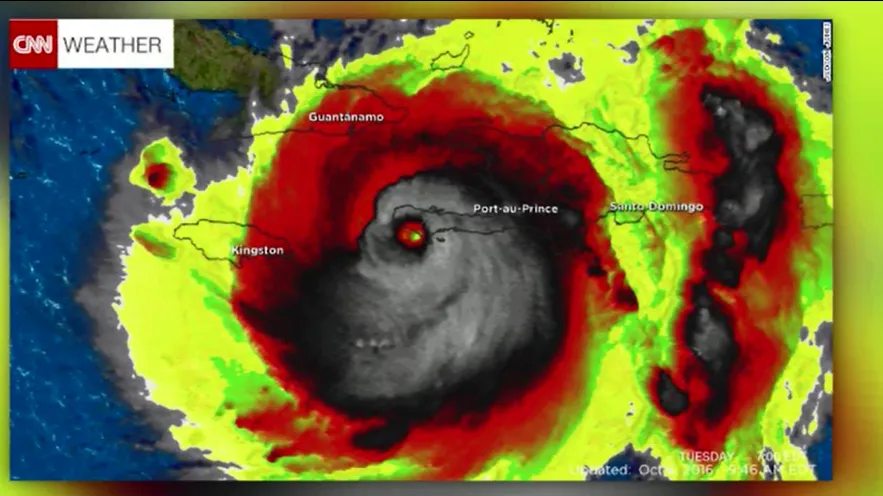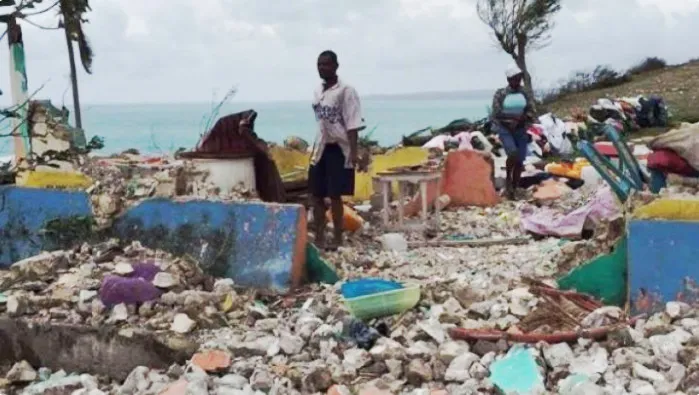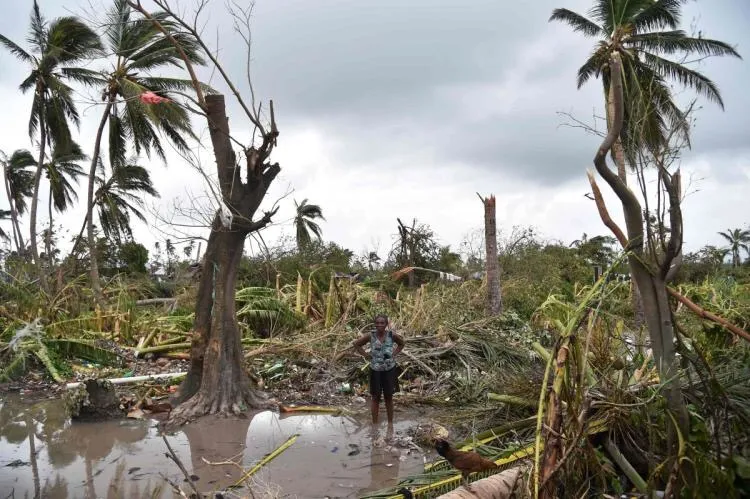Idiosyncrasy of nature
Our story began way before HIVE was launched. It is a very manifold and partly maybe a bit crazy story. However, my tale begins when we landed in the Dominican Republic a few years ago after a failed attempt to cross the Atlantic Ocean back to Europe. Bamba Maru was just ready to sail again after long and difficult repairs in the Caribbean.

Joanna and I could hardly wait to leave this dirty shipyard and the disgusting harbor water in that place and set sail again. To sail to Culebra in the Spanish Virgin Islands and wait for another chance to cross over the Atlantic was the new plan. But it was in the middle of the hurricane season and the weather didn't allow for a quick move on. We had to stay in shelter. As disgusting as this port in the northern Dominican Republic itself may be, it is one of the safest places in the vicinity during a hurricane.
 Luperon DR - picture credit: indominicana.com
Luperon DR - picture credit: indominicana.com
At that time the tropical storm Matthew moved far in the south from the Atlantic Ocean into the Caribbean Sea. There was no indication of any danger to us. The weather models assumed that the storm would move further west and thus stay far away from us. We quickly learned that these weather forecasts for tropical storms can change within the blink of an eye. Matthew had not only gained strength and was now a hurricane, he made it to a full force Category 5 Hurricane, the highest level on the Saffir-Simpson scale, within less than 48 hours. But the real problem was that this major hurricane Matthew had also changed course. It virtually made a 90 degree turn to the north and was now heading straight for us.

credits: The weather channel
In the crosshairs of a major hurricane
Now there was a bit of bustle and every sailor was now following the weather forecast hourly. It was not known whether the Dominican Republic, Haiti, Cuba, or Jamaica would be hit. What was for sure was that no matter where this monster makes landfall, there will be total devastation. The question was the same in all places. Should I stay or should I go? There was still time to leave. We decided to stay and tie up the boat into the mangroves. Matthew hit land in southern Haiti in the province of Les Cayes and the surrounding islands. In that night Matthew mercilessly started his crusade of destruction and wiped everything to the ground. The infrared satellite picture from the national weather service presented literally a skull over Haiti. Slowly he moved northwest across the western peninsulas of Hispaniola.
 credits: CNN
credits: CNN
The center of this hurricane passed through only about 160 nautical miles west of us, and the harbor actually offered sufficient protection. No one of us was hurt and the boats remained all mostly unharmed... Not so in Haiti. First inspectors already reported dozens of deaths and the catastrophe was just beginning.

In the following days, the death rate rose to almost 500 and only now it became known that no one had even entered the disaster area itself. Aerial photos of a Cessna of a US aid organization showed a terrible picture. Houses and even concrete buildings were widely torn apart. Water reservoirs were polluted, farmland was contaminated and all fruit-bearing trees had been wiped down to a few stumps. Drinking water was contaminated and a cholera outbreak was only a matter of time. Most of the livestock had disappeared. Chickens were carried away with their stables and Cows were wrapped in their fences, torn from their pastures and dragged into the sea. It was a really terrifying image.

International aid was very slow taking action and we could imagine the suffering on the other side of the Hill. We were happy not to have been hit ourselves and yet saddened by the hopeless situation of the neighbor people in Haiti. There were still tens of thousands living in tents after the devastating earthquake 6 years earlier. Even if relief supplies were sent to Haiti at some point, the remote islands will receive them too late if at all.
Plans written in sand at low tide
Thinking about all this terrible disaster nearby, a further journey to Culebra as we planed was not conceivable anymore. Now we thought about organizing an emergency supply for the affected people in Haiti near the coast by sailing in convoy to the South and positioning as many yachts as possible with desalination plants on board as a bridge solution until clean drinking water would be available again.

The plan was initially very well received and it seemed that many boats would participate. Unfortunately one after the other dropped out and so we sailed alone towards Haiti. We had a doctor on board who wanted to help on site and the ship was loaded to the limit with relief supplies collected by supporters of our project. Another private sailing boat had already left Florida loaded with relief supplies and was also on course to Ground Zero in Haiti. Apart from a transport freighter from Venezuela and occasional dropping of packages from airplanes, no one had been there yet as the roads and any possible land access was gone. Only by boat, it was possible to reach out to the people. Shortly before we left, we received the news that the police had shot a 10-year-old boy while he was just trying to get some food from the Venezuelan aid ship. The situation seemed to be completely out of control. None of us knew what to expect and how bad the situation on the ground would be, but we were convinced that we could still save lives.
Next we will continue our journey into the unknown and learn more about the difference between a welcome and a voodoo ritual.
Fair Winds and stay tuned!
Captain Andy Bamba